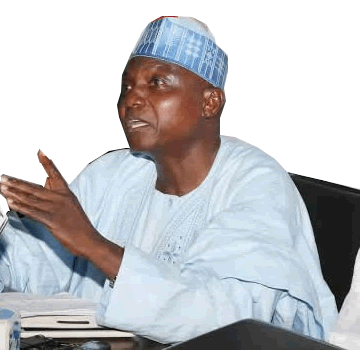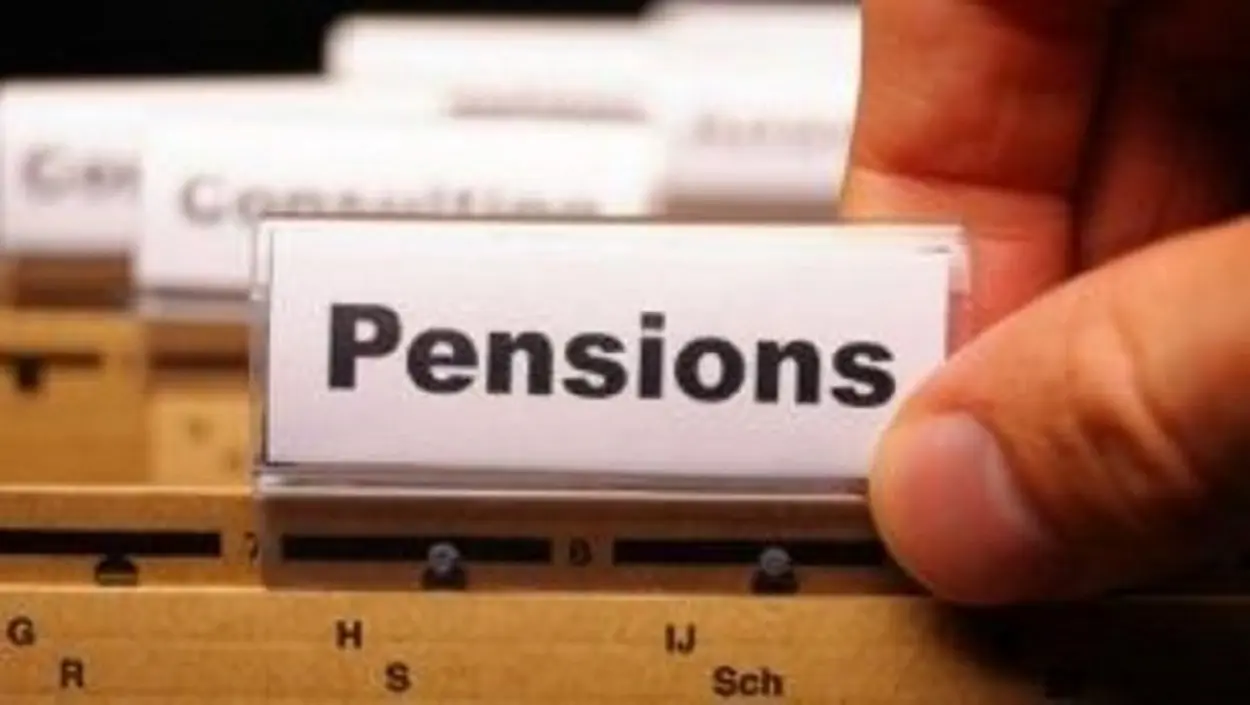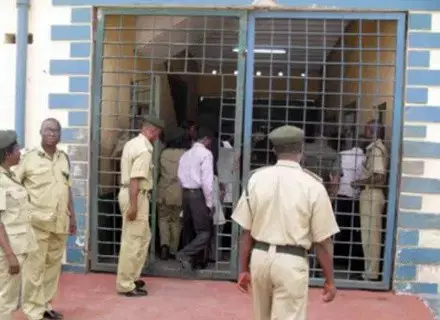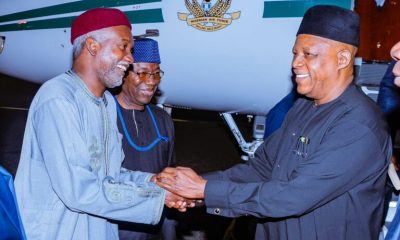COVER
MY TAKEAWAYS FROM THE 76th 2021 UN GENERAL ASSEMBLY SESSION

By Garba Shehu
Throughout last week in New York, the United Nations General Assembly – the congress for the world – gathered for its annual re-affirmation of the principles upon which the organisation was founded.
These are the principles of territorial integrity of nations, of sovereignty, and the rights of all peoples to be treated equally; and of the unacceptability of tribalism, ethnic bias, racism, and fascism – the poison which twice caused World War to be fought, and saw the United Nations founded to uphold the principles which would ensure one would never be fought again.
They are also the principles upon which Nigeria was founded – and which make us one people.
The certainty that we are united as a country of over 500 languages, nearly 400 communities, 36 states – and one nation.
What unites us are our differences. What divides us are those who, for their own nefarious ends, seek to use them to prise us apart.
While President Buhari was focusing on the problems plaguing the nation and in some instances asking for international support to deal with such, a coalition of groups protested outside the UN building.
This happens with all countries- the United States, UK, India, Iran, China, Egypt- about everyone and about every conceivable issue but most especially climate change, gender and animal rights among others.
There are some from the so-called “Yoruba nation” group and the so-called “Indigenous People of Biafra” (IPOB) terrorist group who worked together to protest outside the United Nations building in New York.
They sought to claim astonishingly that, somehow, they have earned rights through violence, murder of law enforcement agents and the innocent, and extortion to run their own affairs.
Many Nigerians at home were disconcerted by the tribal bullying of government officials as they moved to carry out their diligent work between the Nigerian Mission in New York and the UN building, a walkable distance of less than 400 meters.
Protests are allowed by all who had anything to say. Tribal bullying is uncivilised. So is any effort to strengthen insurgency in the country.
This is an extraordinary misinterpretation of the principles of the United Nations. There is no place in or before this organisation for racists, ethnic cleansers, and those who associate with them.
On the other hand, those pro-Buhari/pro-Nigeria demonstrators in immaculate green-white-green deserve to be praised for the maturity and decorum with which they carried on, ignoring crude insults and abuse from an opposition campaign inspired and conducted in accordance with rule book of the Nazi against Jews, Hutu extremists against the Rwandan Tutsi.
In Nigeria today, IPOB has created an armed terror wing, the Eastern Security Network – complete with a fascistic logo – to coerce through violence innocent Nigerians, forcing them to protest against those of other ethnicities and religious beliefs and to lockdown states and stop people from the pursuit of their legitimate aspirations.
They seek power by demonising other communities and targeting those Nigerians who speak other dialects. Any group associating with this recognised terrorist group is demonstrating there is little difference in their beliefs, or their intent.
President Buhari came to the UN to tell the world that his government is rebuilding sustainably from the COVID-19 pandemic, responding to the needs of the planet, respecting the rights of the people and supporting the UN; that Nigeria is guaranteeing fundamental human rights and tackling climate change to achieve environmental sustainability.
The President also expressed commitment to UN programmes, in particular the 2030 Agenda on Sustainable Development; that the Federal Government under him has instituted a monitoring and evaluation mechanism for Sustainable Development Goals (SDGs) related policies and programmes.
The Nigerian leader also gave firm assurances that Government is taking measures to organize transparent elections at all levels, fighting to provide security for all and sustainable socio-economic development.
In this context, his government is focusing on economic diversification, infrastructure development, job creation and human capital development as drivers of economic growth and stability.
There are indeed also major initiatives to promote foreign direct investment and export.
Government, he similarly assured, is investing huge resources to facilitate the emergence of a secure, stable, viable, resilient and prosperous nation.
At the sub-regional level, President Buhari was acclaimed for leading in the fight against terrorism and the enthronement of democratic culture and practice.
At the International level, the support in the fight against global terrorism, leading the campaign against corruption, illicit financial flows and supporting assets recovery also endeared the President to his audiences.
As a good global citizen and player, President Buhari gave clear indication of the willingness on the part of Nigeria to continue championing a just world order with free trade and free movement of goods and persons, and greater regional integration based on respect, justice and fairness.
Success in getting Nigerians into key positions in international organizations is a result of Government’s vision of global peace and concord.
This is also reflected in peacekeeping roles around the world. The Nigerian Technical Aid Corps programme continues to provide technical support outreach to countries of the Caribbean, Africa and the Pacific.
As the biggest country in Africa, the Government takes seriously its leadership role on the continent and strives to promote African prosperity.
In addition to all these, President Buhari promised to take steps towards providing concrete frameworks for institutionalized diaspora engagement in Nigeria.
Hopefully we will soon have Diaspora voting in elections in Nigeria.
On a parting note, Nigeria, the President emphasized, will always remain true to the values and principles of the United Nations. And we will always stand in defence of those principles against those who do not.
In all, about 109 heads of state and government addressed the Assembly during the General Debate in person and nearly 60 delivered speeches through pre-recorded video statements.President Buhari last addressed the UN General Assembly session in 2019. In 2020, he and other world leaders submitted recorded video statements as heads of state and government could not physically attend due to the coronavirus pandemic.Shehu is Senior Special Assistant to the President (Media and Publicity)
MY TAKEAWAYS FROM THE 76th 2021 UN GENERAL ASSEMBLY SESSIONBy Garba Shehu,
Throughout last week in New York, the United Nations General Assembly – the congress for the world – gathered for its annual re-affirmation of the principles upon which the organisation was founded.
These are the principles of territorial integrity of nations, of sovereignty, and the rights of all peoples to be treated equally; and of the unacceptability of tribalism, ethnic bias, racism, and fascism – the poison which twice caused World War to be fought, and saw the United Nations founded to uphold the principles which would ensure one would never be fought again.
They are also the principles upon which Nigeria was founded – and which make us one people.
The certainty that we are united as a country of over 500 languages, nearly 400 communities, 36 states – and one nation.
What unites us are our differences. What divides us are those who, for their own nefarious ends, seek to use them to prise us apart.
While President Buhari was focusing on the problems plaguing the nation and in some instances asking for international support to deal with such, a coalition of groups protested outside the UN building.
This happens with all countries- the United States, UK, India, Iran, China, Egypt- about everyone and about every conceivable issue but most especially climate change, gender and animal rights among others.
There are some from the so-called “Yoruba nation” group and the so-called “Indigenous People of Biafra” (IPOB) terrorist group who worked together to protest outside the United Nations building in New York.
They sought to claim astonishingly that, somehow, they have earned rights through violence, murder of law enforcement agents and the innocent, and extortion to run their own affairs.
Many Nigerians at home were disconcerted by the tribal bullying of government officials as they moved to carry out their diligent work between the Nigerian Mission in New York and the UN building, a walkable distance of less than 400 meters.
Protests are allowed by all who had anything to say. Tribal bullying is uncivilised. So is any effort to strengthen insurgency in the country.
This is an extraordinary misinterpretation of the principles of the United Nations. There is no place in or before this organisation for racists, ethnic cleansers, and those who associate with them.
On the other hand, those pro-Buhari/pro-Nigeria demonstrators in immaculate green-white-green deserve to be praised for the maturity and decorum with which they carried on, ignoring crude insults and abuse from an opposition campaign inspired and conducted in accordance with rule book of the Nazi against Jews, Hutu extremists against the Rwandan Tutsi.
In Nigeria today, IPOB has created an armed terror wing, the Eastern Security Network – complete with a fascistic logo – to coerce through violence innocent Nigerians, forcing them to protest against those of other ethnicities and religious beliefs and to lockdown states and stop people from the pursuit of their legitimate aspirations.
They seek power by demonising other communities and targeting those Nigerians who speak other dialects. Any group associating with this recognised terrorist group is demonstrating there is little difference in their beliefs, or their intent.
President Buhari came to the UN to tell the world that his government is rebuilding sustainably from the COVID-19 pandemic, responding to the needs of the planet, respecting the rights of the people and supporting the UN; that Nigeria is guaranteeing fundamental human rights and tackling climate change to achieve environmental sustainability.
The President also expressed commitment to UN programmes, in particular the 2030 Agenda on Sustainable Development; that the Federal Government under him has instituted a monitoring and evaluation mechanism for Sustainable Development Goals (SDGs) related policies and programmes.
The Nigerian leader also gave firm assurances that Government is taking measures to organize transparent elections at all levels, fighting to provide security for all and sustainable socio-economic development.
In this context, his government is focusing on economic diversification, infrastructure development, job creation and human capital development as drivers of economic growth and stability.
There are indeed also major initiatives to promote foreign direct investment and export.
Government, he similarly assured, is investing huge resources to facilitate the emergence of a secure, stable, viable, resilient and prosperous nation.
At the sub-regional level, President Buhari was acclaimed for leading in the fight against terrorism and the enthronement of democratic culture and practice.
At the International level, the support in the fight against global terrorism, leading the campaign against corruption, illicit financial flows and supporting assets recovery also endeared the President to his audiences.
As a good global citizen and player, President Buhari gave clear indication of the willingness on the part of Nigeria to continue championing a just world order with free trade and free movement of goods and persons, and greater regional integration based on respect, justice and fairness.
Success in getting Nigerians into key positions in international organizations is a result of Government’s vision of global peace and concord.
This is also reflected in peacekeeping roles around the world. The Nigerian Technical Aid Corps programme continues to provide technical support outreach to countries of the Caribbean, Africa and the Pacific.
As the biggest country in Africa, the Government takes seriously its leadership role on the continent and strives to promote African prosperity.
In addition to all these, President Buhari promised to take steps towards providing concrete frameworks for institutionalized diaspora engagement in Nigeria.
Hopefully we will soon have Diaspora voting in elections in Nigeria.
On a parting note, Nigeria, the President emphasized, will always remain true to the values and principles of the United Nations. And we will always stand in defence of those principles against those who do not.
In all, about 109 heads of state and government addressed the Assembly during the General Debate in person and nearly 60 delivered speeches through pre-recorded video statements.President Buhari last addressed the UN General Assembly session in 2019. In 2020, he and other world leaders submitted recorded video statements as heads of state and government could not physically attend due to the coronavirus pandemic.
Shehu is Senior Special Assistant to the President (Media and Publicity)
COVER
FG Disburses N5.12bn Pension Arrears to 90,689 DBS Pensioners

By Tony Obiechina, Abuja
The Federal Government has released funds for the disbursement of N5.12 billion in pension arrears to 90,689 Defined Benefit Scheme (DBS) pensioners under the Pension Transitional Arrangement Directorate.This was contained in a statement by the Head of Corporate Communications of PTAD, Olugbenga Ajayi.
He said that the directorate had finalised the disbursement of the money. The Nigeria Customs Service, the Nigeria Immigration Service, and Prisons Pension Department (CIPPD) pensioners are 8,626, received N276,032, for one-month arrears; the Police, Pension Department (PPD) pensioners are 9,681, received N619,584, for two months as arrears. The Civil Service Pension Department (CSPD) pensioners are 12,773, received N408,736, for one-month arrears, and the Parastatals Pension Department (PAPD) pensioners are 59,609, received N3,814,He said that the payment reaffirms the administration’s commitment to ensuring that pensioners receive their due entitlements in line with the Renewed Hope Agenda of President Bola TinubuAccording to the statement, the approvals align with the President’s Renewed Hope Agenda.“This move shows President Tinubu’s strong commitment to senior citizens’ welfare and marks a new era in DBS pension management,” said PTAD, Executive Secretary, Tolulope Odunaiya.Among the key measures is the immediate implementation of an extra budgetary allocation to enforce new pension rates for DBS pensioners.The President also endorsed the adoption of a proposed pension harmonisation policy, which will be incorporated into the 2026 pension budget. Additionally, health insurance coverage for all DBS pensioners has been approved, ensuring access to essential healthcare services.The proposed reforms include a new pension rate of N32,000 and incremental increases of 10.66% and 12.95% for pensioners from defunct and privatised agencies. Other components of the reform package include harmonisation of pension rates across all DBS pensioners and their enrolment into the National Health Insurance Scheme (NHIS).In June, PTAD announced the successful disbursement of N8.6 billion in pension arrears to 148,625 eligible DBS pensioners across various sectors. The payments reflect the implementation of the N32,000 pension increment approved by President Tinubu in 2024.PTAD had previously settled arrears related to the first pension increment of 20% to 28%, which came into effect in January 2024.COVER
NAF Offensive Decimates 592 Terrorists, Destroys 372 Assets in Eight Months

By David Torough, Abuja
The Nigerian Air Force (NAF) has killed no fewer than 592 terrorists and destroyed 372 enemy assets in Borno within the last eight months, surpassing the total operational gains recorded in 2024.A statement by NAF’s spokesman, Air Commodore Ehimen Ejodame yesterday said the Chief of the Air Staff (CAS), Air Marshal Hasan Abubakar, said this during a courtesy visit to Gov.
Babagana Zulum of Borno. Abubakar said the offensive had destroyed 206 technical vehicles and 166 logistics hubs in deep hostile territory, with coordinated day-and-night strikes from Gonori to Rann, Dikwa to Damboa, Azir to Mallam Fatori.He said the offensive had been boosted by the deployment of A-29 Super Tucano aircraft capable of precision and night missions, Mi-171 helicopters for medical evacuation and logistics, and enhanced intelligence, surveillance and reconnaissance platforms for round-the-clock target tracking.He added that a new Mi-35 gunship was expected to further intensify close-air support for ground troops in the theatre.“Backed by an upgraded fleet and precision night-strike capabilities, NAF aircraft executed 798 combat sorties, clocking over 1,500 operational flight hours in the Air Component of Operation Hadin Kai.“This year, our air war is faster, sharper, and more surgical.“We are taking out high-value targets, crippling their logistics, and hunting down every cell that threatens the peace of the North-East,” he said.The CAS also praised the “Borno Model” of combining community-driven non-kinetic measures with decisive military action, saying it had proven effective in the counter-insurgency campaign.He also inspected facilities at the NAF Base, met with aircrew and ground personnel, and received operational briefings.He reaffirmed the NAF’s commitment to precision air power, intelligence-led operations, and inter-agency collaboration to protect Nigerians.In his response, Gov. Zulum praised the NAF for its sustained air support in degrading terrorist capabilities and protecting communities.According to him, the NAF has been a steadfast partner in their fight against insurgency.“Your operations have saved countless lives and allowed our communities to begin rebuilding.“The people of Borno recognise your sacrifices and stand firmly behind you,” he said.COVER
Over 8,000 Mentally ill Inmates in Custody Nationwide, Says NCoS

By Divine Ndukwe, Abuja
The Nigerian Correctional Service (NCoS) has disclosed that at least 8,246 inmates across the country’s custodial centres are living with mental health conditions.Assistant Controller General of Corrections in charge of Medical Services, Dr.
Glory Essien, revealed the figures yesterday in Abuja during the third public hearing of the Independent Investigative Panel on Alleged Corruption, Abuse of Power, Torture and Other Inhumane Treatment by the NCoS. Essien described incarceration as a deeply stressful experience, noting that the loss of freedom can trigger or worsen mental health conditions. She explained that inmate-leaders are trained to identify and report cases of psychological distress for early intervention, but available resources remain insufficient.“If you’re in a facility housing 500 to 1,000 inmates, with just one doctor or psychologist, monitoring everyone individually is impossible,” she said, citing logistical and funding challenges that hamper adequate care.Similarly, the NCoS Assistant Controller General in charge of Pharmaceutical Services, Mohammed Bashir, acknowledged that drug shortages and limited staffing remain major obstacles despite government funding.He revealed that a psychological services unit has been established, partnering with psychiatric associations to visit major facilities, though resources still fall short of demand.Permanent Secretary in the Ministry of Interior, Dr. Magdalene Ajani, called for urgent private sector support, stressing the need to deploy more psychiatric professionals to underserved states. “Please come to Macedonia and help us,” she appealed to the Nigerian Medical Association and pharmaceutical companies.Meanwhile, in Kwara State, the Nigerian Medical Association (NMA) has expressed alarm over rising mental health issues among doctors, linking the trend to burnout, workplace violence, and poor working conditions.Kwara NMA Chairman, Prof. Olushola Abdulrahman Afolabi, said a significant proportion of doctors experience depression, anxiety and other psychiatric disorders, often without seeking help due to stigma.Former NMA chairman, Prof. Issa Baba Awoye, warned that current figures could be worse than past studies, especially in resource-poor settings.The NMA is advocating for mandatory mental health evaluations for doctors, alongside increased awareness and stigma reduction campaigns. “Our healthcare system can only be as strong as the mental and physical well-being of those who sustain it,” Afolabi stated.Both the NCoS and NMA agree that mental health care must be prioritized, not just for inmates, but for those tasked with caring for the nation.





























